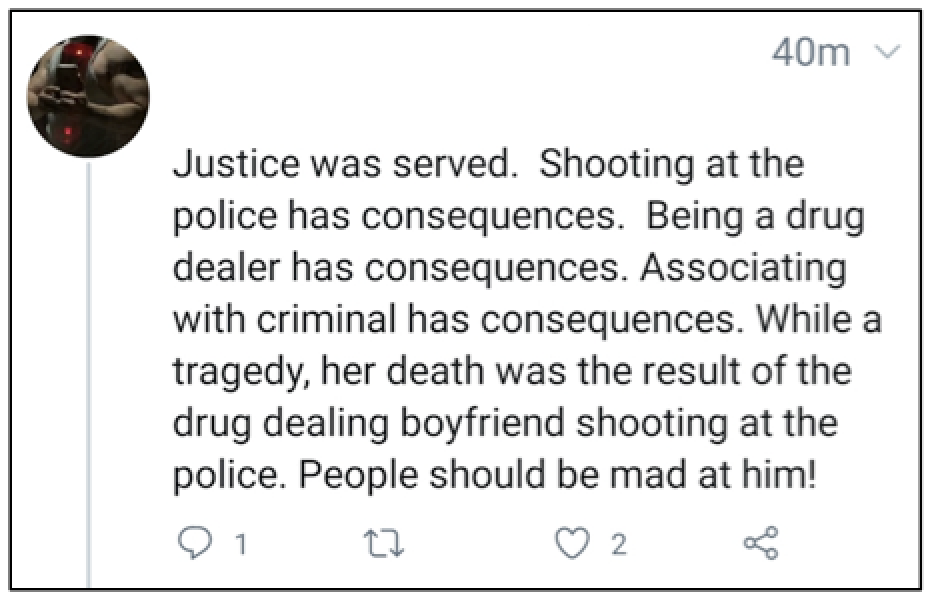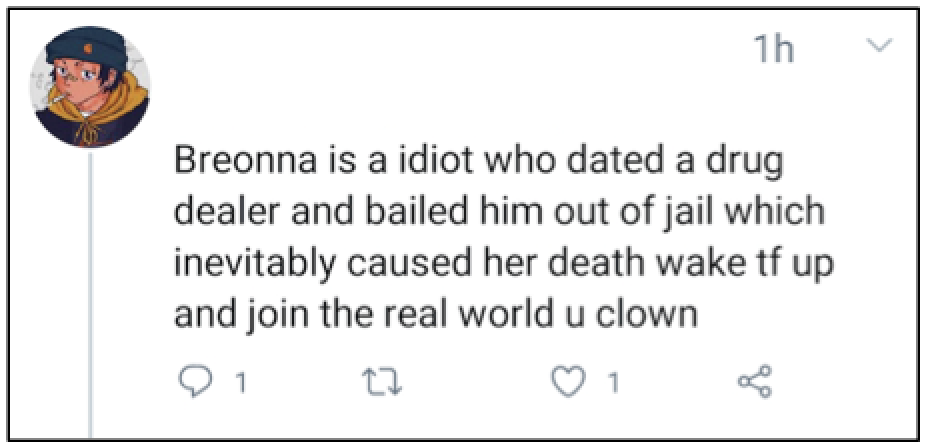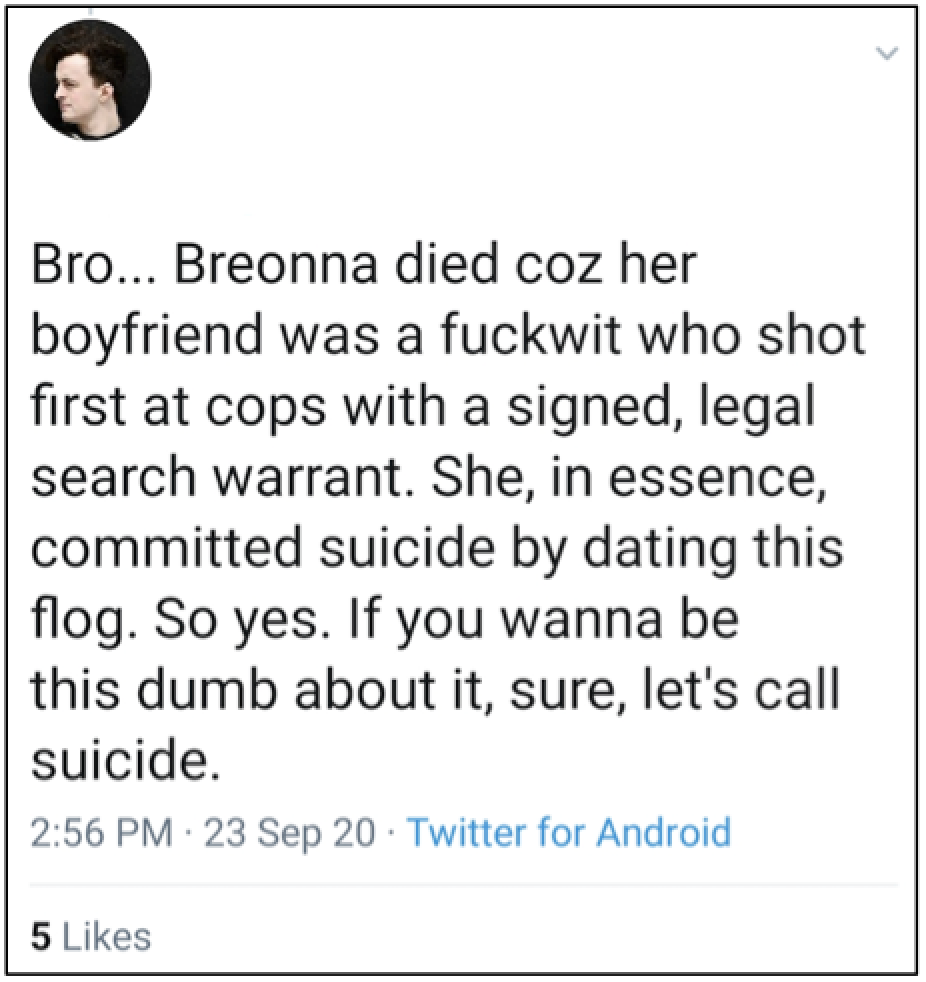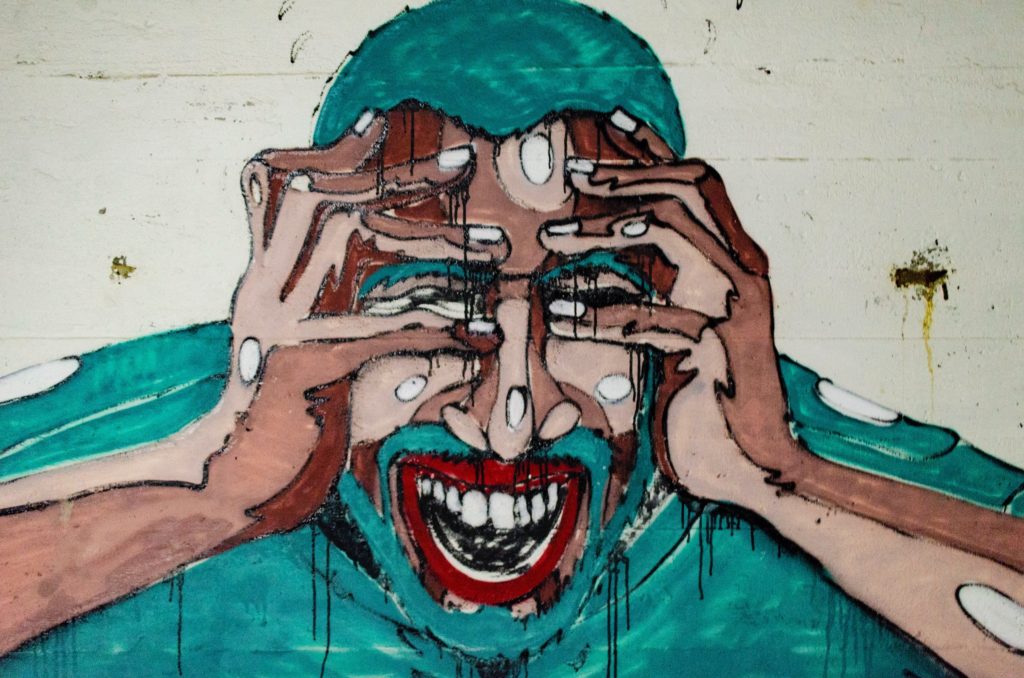Photo by Aarón Blanco Tejedor
When did we become so intolerant as a society?
I’ve thought about that question for awhile now. And whenever I start to think the word is too harsh, I see something that reminds me it’s appropriate. Just look at these comments following the decision not to indict officers for the murder of Breonna Taylor. One has strong language.



I had to stop reading at that point. You might notice these aren’t posts by people outraged by the decision. Rather, these are people who support the decision and still felt compelled to express their animosity by commenting on posts saying justice wasn’t served.
How did we get here? Can’t we disagree and still be civil? Why does dialogue seem impossible?
And this isn’t a post revisiting the situation that led to Breonna Taylor’s death, or whether or not justice was truly served. That’s a separate discussion, and, honestly, I’m still debating internally on what I think justice actually looks like, for her and for many others.
This is about how people are so intolerant of those with different opinions. It’s all around me. I even see it in social media feeds of my own friends and family.
“I’m not interested in having any of the $6 Starbucks Frappuccino Drinking White Privilege Warriors lecture me on how to have discussions about racism…”
“I keep thinking I’ll get people like him to either unfollow or unfriend me, but it looks like I’m going to have to keep on working on it…”
“[We] would like to have conversations about your and our beliefs, with you, but I’m afraid there isn’t much to discuss unless you are first willing to stand for our flag during the national anthem with your hand over your heart, and if necessary, be willing to give your life for your country as so many have done before you. If you are willing to do those things, then we know you are a patriotic American first and foremost, and then we can have conversations. Otherwise, I think it would be pointless.”
These are all things people have said to me lately on social media. And the last one is a family member’s response when I said I wish we could have a conversation about a post calling out NFL players kneeling during the anthem. I didn’t express my own opinions, only a desire to talk.
But we can only have that conversation once I concede to certain ideologies and act a certain way? What would the conversation look like then? How different would that make our beliefs?
Context is important, and you might be asking yourself what I could have said to elicit such responses. To that I’d say, most of the conversations didn’t start off so tense. In most instances there was some back and forth, but once it became clear we might disagree, things took a turn. And I’d like to think my comments were civil, but I’m sure there are those who would disagree.
One person said “they think I want to be black” and another told me to stay out of their life after I “attacked” them. I know some conversations are challenging, but people’s unwillingness to be challenged seem to make some topics off limits. And maybe it’s because this is an election year and November 3rd is only 39 days away, but these discussions so often turn into political debates, which I don’t understand.
How do so many personal decisions get conflated with partisan beliefs? Things like wearing masks or how schools are to respond in the face of COVID-19? How are those political debates?
Two of the quotes I mentioned were by someone who also said they worried a professor might not care for an essay they wrote recently “due to many college professors these days being more leftist/liberal/left-leaning.” Is everything partisan, even grades from college professors?
And then one day I came to a realization… it’s no longer impossible for me to understand how someone can be radicalized without ever knowing it. Especially when it comes to our politics.
As Newt Gingrich put it, politics is a war for power. And it’s one with loyal combatants. In fact, party loyalty in voting has now reached record levels and it “has a stronger influence on vote choice than at any time since the 1950s.” But that’s not all. We are driven less by our own party loyalty and more by negative partisanship, which is our hatred for the “other” party.
So loyalty is at an all-time high and we’re more motivated by our hate than our own loyalty?
So partisan dictates our thoughts and how we treat people? Is there another way besides being angry at a party which inevitably leads to anger at people supporting it? What are we to do?
I know what I’m going to do. I’m going to lean in to those who think differently, whether it’s politically, religiously, socially, or otherwise. I think it’s the only way to bridge the gap.
Consider this an open invitation to anyone out there. And I really mean that. If you’re willing to chat about our differences, I’d love to have a conversation. Feel free to email me, DM me on social media, or post a comment here.
I’ve asked a few people to have these types of conversations, and I even recorded one recently and hope to release it as a podcast soon, to show that these conversations can and do occur.
I’m convinced it’s possible to have productive dialogue even while disagreeing. I believe people with different experiences and perspectives can still treat others with dignity and respect.
Do you think it’s possible?
Can we talk about it?

Hi Jeff,
So the first thing I said to my wife this morning was “hey dear, I made it into Jeff’s blog!!”
I apologize if you took offense to my comment on your post on Marion’s FB post, but let me explain. She reposted something a friend said about boycotting the NFL games due to the position the NFL took as a social justice issue. She (and I) believe that sports should not involve itself in such issues. It’s ruining sports. She stated her position. Your message to her was that you wanted to have a conversation about it. Simply by that statement, it’s clear you have a different opinion. You might not say it, but you know it’s true. You took a position.
Any relevant conversation about a controversial subject has to start from common ground. I asked you if that common ground could be our loyalty and love for our country. It wasn’t about the NFL, it was common love of country. I say it this way because I think the NFL is trying to divide us as a country. You might think I overstate this, but I do believe it.
So I was just trying to gage your position before a conversation starts. If we are so divided on love of country, when I talk you would hear “blah, blah, blah”. And when you talk, I would hear “blah, blah, blah”. Thus I stated it would be a pointless conversation. Love of country seems to be a reasonable starting point for conversation.
Since I’m here, I would like to comment on your blog subject – intolerance. I agree that it’s a huge issue. I’m sorry to hear you say the three examples you gave were so offensive that you had to stop reading them. I suspect the reason you stopped reading is because you don’t agree with them, thus, they became offensive. I find the fact that rioting, looting, burnings, shootings, and killings have been taking place all around the country on a false narrative of Breonna’s death shows such level of intolerance from the far left, that these 3 posts you find offensive are trivial in comparison.
Intolerance from the left is destroying our country. Intolerance from the right is trivial in comparison.
Take care.
Al,
Thanks for taking time to check out the blog and comment.
I have to say, I did find this comment more surprising than your previous one, though.
Even if asking for a conversation indicates my differing opinion, was it enough for you to fully understand just what my “position” might be?
Context is important so for anyone curious, this is the post we’re referring to, and the conversation I wanted to have had nothing to do with kneeling during the anthem. Rather, it was about how racist the post is and whether you and Marion are aware.
And just because it doesn’t explicitly mention race doesn’t mean it can’t be racist. It’s classic dog-whistle tactics, it’s encoded in the language. It makes sense many kneeling are people of color because over 70% of NFL players are people of color. And arrests mentioned in the post almost certainly refer to people of color because black NFL players are disproportionately arrested at alarming rates.
“Although we love to watch you play, we care little about your opinions until you offend us. You have the absolute right to express yourselves, but we have the absolute right to boycott you. We have tolerated your drug use and DUIs, your domestic violence, and your vulgar displays of wealth.”
That’s just one of the paragraphs in the post, and it’s a clear message to the players: Dance monkey, dance. That’s all you’re good for. You’re a dumb brute who doesn’t deserve your money, and you’re lucky to not be working at McDonald’s. You don’t deserve to use your voice for real-life issues. You’re only for my entertainment.
It’s so racist. And if that’s the position indicated by my offer to talk, great. As I said, I didn’t desire a discussion about boycotting the NFL. If you, or anyone, wants to do that, you can. Do it. But why does it also have to involve verbally attacking and ridiculing others in the process?
As for common ground, it might help with conversations, but I don’t think it’s a requirement. I think it’s possible for people to listen and learn even without it. Also, us having a conversation doesn’t have to result in you or I conceding in our beliefs. It’s simply to listen to each other in hopes of better understanding one another, even if we disagree.
As for “loyalty and love for our country” as our common ground, I’m equally as much Algerian as I am American. So is your expectation that I have half as much love and loyalty for America as you do, or should I have as much loyalty for both Algeria and America as you do? I’m not being cavalier. I’m being serious. It’s an honest question.
And would you use that as common ground before talking to immigrants living here in America about kneeling during the anthem? Are they to share that same sentiment because they live here? What about indigenous people? Do you expect Indigenous people living here to hold their hands over their heart and be willing to die for the U.S.A. before you are willing to discuss kneeling with them?
To me, that’s such a limited view to be seen as the starting point for the conversation. If we need common ground, can it be we agree all people deserve dignity, equality, and respect, regardless of where they were born or what opinions they have regarding politics or social justice?
And even if the common ground you suggested was solely what you had in mind specifically for the two of us and not for others, can’t the common ground for us simply be that we are family? That you are my uncle and I am your nephew and we have enough compassion for each other that we can respect each other’s thoughts and opinions?
This blog post wasn’t to be about Breonna Taylor, but we can certainly have a conversation about that if you’d like. As for the tweets I shared, I didn’t say I only read three. I only chose to share three. And I said one was the last that I read. I chose to share them because I was shocked at their lack of humanity. Even if you think everything that happened was legal and justified, in my opinion it’s still a tragedy. And if the same situation were to happen to you and Marion, if the police acted in perfect accordance with the law and you or her lost a life, I would think it was a tragedy. And these tweets would be inhumane about you.
I hear you when you say tweets like these pale in comparison to rioting and looting and burning. To that I say, to me, any property damage will always pale in comparison to loss of human life. You mentioned shootings and killings, and that we certainly agree on. It’s not justified. And it’s tragic.
But I also find myself recalling this country was founded upon thievery, destruction, and revolt. You might think I overstate this, but I do believe it. Land was stolen. The Boston Tea Party was a riot. And people had grievances with those in power and how that power was being used.
Federal and local governments even called Freedom Riders and Civil Rights activists agitators in their unrelenting quest for equality. People said they should stop causing problems and leave well enough alone. I worry we’re seeing the same thing today as so many are heavily focused on the behavior of some and not interested in the grievances that are frustrating people.
As for your final comment, you explicitly denounced intolerance from the left but specifically chose different words for the right, which I found disappointing. It implies you think intolerance from the right is, in some capacity, an acceptable version. To me, intolerance, regardless of where one is on the political spectrum, isn’t to be tolerated. And as I said, that’s the premise of the paradox.
I’m not quite sure where this leaves us. I don’t expect you to engage in a lengthy back-and-forth discussion here, although you’re more than welcome to. And the offer still stands to have a conversation, about any or all of this.
You and Marion take care, as well.
Hi Jeff,
I think my comment about what you hear me say and what I hear you say is correct – blah, blah, blah. You took so many things I said out of context that I don’t know where to begin.
So – instead – please allow me to go off on a tangent on my personal opinions on some things.
Race and skin color shouldn’t make any difference to anyone. Dr. Martin Luther King, a wonderful individual, advocated that the content of your character, not the color of your skin is what’s really important. WHAT A PROFOUND STATEMENT! This society is a blended society, and becomes more blended each and every day. But for some reason, race and skin color has, again, become a very destructive issue for our country.
And (this is important), MLK advocated to change social issues through non-violent means, even to his death. You might know this, but shortly before the assignation of MLK, Stokely Charmichael, the founder of The Black Power movement, told Dr. King that his non-violent agenda was the wrong way to correct social injustice issues. Dr King, in a very fiery speech, rebuffed Charmichael’s method of violet protests and riots. It is so unfortunate to our country that we lost Dr. King when we did. We need another MLK.
I think the best thing we could do as a country, as a world, is to eliminate the question of race. Do I really care what race or skin color someone else has? No! Does the city, county, state, or federal governments REALLY need to know your race? No. Am I white? Are you a person of color? Does it really make a difference. Who really cares anyway. According to my DNA from Ancestry, I’m 1% African decent. Technically, if you believe the one drop of blood theory that I read about, I could technically call myself an African American. If you hold up a white piece of paper to my face, I’m not white according to any color scale I’ve seen. That makes me a person of color too. I’m also pretty tired of of the term “white privileged”. It doesn’t exist. You, as a person of color as you refer to yourself, had more privileges growing up than me. I shared the same bedroom with 3 other siblings growing up. Our 6 person family lived, for many years, in the duplex you lived in – rent free. Are you more privileged than me? I think so. Being born In the USA is a huge privilege. Are you aware of that privilege? There are a billion people who would love to have the privilege of living where you live.
I know there were severe racial issues in our past, But, by and large, I think our country has moved beyond them. For goodness sake, Barack Obama was elected President – twice. But certain groups continue to use race and skin color as a wedge. Don’t get caught up in it. I went to school during segregation , so I’ve seen it. It wasnt pretty, or fair to blacks. But I truly stopped seeing skin color many years ago. But now it’s being dragged back in on everything we do. And we are REQUIRED to look at skin color again.
Don’t let race and skin color distort your thinking. So, I advocate to eliminate on any forms, the question of race. Let’s continue to blend. Let’s find another Dr. Martin Luther King. Maybe it’s YOU.